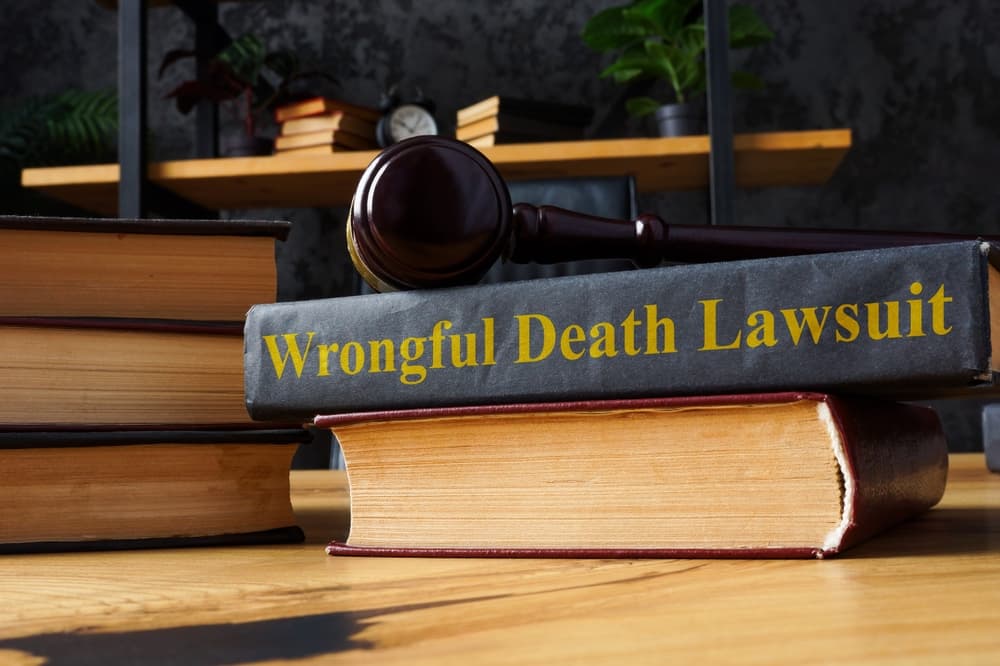The loss of a loved one is one of life’s most profound challenges. For many families, questions come about accountability and what to do next. If you feel overwhelmed with medical terms and legal considerations, there is help available. Understanding who can file a lawsuit if a loved one dies from Stevens-Johnson Syndrome is a critical first step toward getting answers and addressing your loss. You may also consult a SJS lawyer to advocate your case.
For families grappling with a death caused by SJS, knowing your legal rights can provide clarity and perhaps a pathway to justice. Below is a breakdown of what Stevens-Johnson Syndrome is as well as how families can take steps toward accountability.
What is Stevens-Johnson Syndrome?

Stevens-Johnson Syndrome (SJS) is a rare and severe reaction often triggered by certain medications. It causes the skin and mucous membranes to blister, peel, and form painful lesions.
While it starts with flu-like symptoms, it can rapidly escalate, requiring intensive medical care. If not treated early, SJS can progress to toxic epidermal necrolysis (TEN), which can be life-threatening due to complications such as infection or organ failure.
SJS has a wide range of potential triggers, with medications being the most common culprit. Common drugs linked to this condition include:
- Antibiotics (such as sulfonamides)
- Anti-seizure medications
- Nonsteroidal anti-inflammatory drugs (NSAIDs)
While SJS can develop in some cases due to infections or other medical conditions, the majority of lawsuits stem from adverse drug reactions. For families, the frustration is often rooted in how preventable these cases can be. Many medications linked to SJS have known risks, yet warnings may be missing, insufficient, or downplayed.
Some pharmaceutical companies fail to adequately test their drugs, and healthcare providers may overlook warning signs or fail to inform patients of potential dangers. This negligence can have devastating consequences, stripping a family of their loved one in a matter of days or weeks.
A Closer Look at Toxic Epidermal Necrolysis
Although SJS and TEN are part of the same condition, separation based on severity matters in legal contexts. Toxic epidermal necrolysis (TEN) affects over 30% of the body surface area and is regarded as an extreme escalation of SJS.
Survival depends on timely and aggressive medical care, often requiring hospitalization in burn units. Families of TEN victims are often left dealing with medical bills, emotional trauma, and the sudden hole left in their lives. These medical realities make the pursuit of accountability an important step toward recovery.
Who Can File a Lawsuit After an SJS-Related Death?

When a loved one passes away due to SJS, certain people may have the legal right to pursue a lawsuit. Known as wrongful death claims, these suits allow surviving family members to hold negligent parties accountable.
However, not everyone close to the deceased may qualify to file. Eligibility depends on the state’s specific laws and typically includes the following:
Immediate Family Members
States generally prioritize immediate family members, such as the:
- Spouse
- Biological or adopted children
- Parents of the deceased
- Minors who lose a parent to SJS and depend on financial compensation to replace lost support
For example, consider a case where a young mother with no prior health issues developed SJS after taking a prescribed antibiotic. If she leaves behind a spouse and children, her immediate family members may file a lawsuit seeking justice for lost income, emotional trauma, and other damages.
Dependents or Financial Beneficiaries
Certain jurisdictions expand eligibility to include dependents or financial beneficiaries, even if they're not biologically related. This could include stepchildren, domestic partners, or even siblings who were financially reliant on the deceased. Again, each state’s interpretation of dependents varies, making it essential to talk to an attorney to understand local laws.
Estate Representatives
If specific family members cannot file directly or the court deems it more appropriate, the executor of the deceased’s estate may file a wrongful death lawsuit. This executor acts on behalf of all beneficiaries under the estate plan or will.
What Damages Can Be Recovered?
Those filing a claim may seek damages for several types of losses, including:
- Medical expenses related to the deceased’s treatment.
- Funeral and burial costs.
- Loss of financial support that the deceased would have provided.
- Pain and suffering endured by the deceased prior to passing.
- Loss of companionship, love, and guidance for surviving family members.
Understanding Negligence in SJS Cases
The foundation of most Stevens-Johnson Syndrome (SJS)-related lawsuits lies in proving negligence. Negligence occurs when an individual or entity fails to act with reasonable care, resulting in preventable harm. This can stem from a variety of scenarios where basic responsibilities in healthcare or pharmaceutical industries are overlooked.
Medication Manufacturers

Pharmaceutical companies bear the enormous responsibility of ensuring their products are safe for public use. This includes rigorous testing, clear labeling of risks, and timely communication regarding potential hazards. However, negligence can occur if they neglect these duties, leading to catastrophic results.
How Negligence Happens
- Failure to Warn About Risks
Some medications carry a higher risk of triggering SJS. When a drug manufacturer fails to include warnings about these risks in their product information or labels, patients and healthcare providers are left uninformed about potential dangers. This omission can result in devastating reactions. - Hiding Adverse Effects
Worse than failing to warn is actively concealing known risks. For instance, suppose a company’s internal testing reveals adverse reactions, but they downplay or withhold this information from public safety reports to prioritize sales. Such actions constitute gross negligence and can endanger countless lives.
Example Scenario
Imagine a pharmaceutical company developing a new pain reliever discovers during trials that the drug has been linked to an unusually high rate of SJS cases. Rather than conducting further research or issuing warnings, they rush the medication to market.
A patient experiencing chronic pain is prescribed the drug, unaware of its dangerous side effects. When they develop SJS and suffer life-threatening complications, the company may be held responsible for the preventable harm caused.
Healthcare Providers

Doctors, nurse practitioners, and other healthcare professionals are on the front lines of patient safety. They are tasked with not only prescribing medications but also ensuring patients understand the risks involved. Neglecting this duty of care can have dire consequences.
How Negligence Happens
- Prescribing High-Risk Medications Without Disclosing Side Effects
While some prescriptions are necessary, healthcare providers have a duty to warn patients about potential side effects, especially if the drug carries significant risks like SJS. Failing to communicate this critical information could leave a patient unprepared to identify early warning signs. - Not Considering the Patient’s Medical History
Certain individuals may have predisposing factors that increase their likelihood of developing severe reactions. For instance, a healthcare provider who overlooks a patient’s history of allergies or prior reactions to similar drugs may place them in unnecessary danger.
Example Scenario
Consider a patient visiting a clinic for a bacterial infection. Despite the availability of several treatment options, the doctor prescribes a medication known to carry a high risk of causing SJS. The patient, unaware of the potential side effects, diligently follows the prescription.
Over time, they experience mysterious symptoms but assume these are unrelated to the drug. When the patient is hospitalized with skin blistering and organ damage, the healthcare provider may be held accountable for prescribing the risky medication without adequate disclosure.
Pharmacies and Pharmacists

Pharmacists play an essential role in safeguarding patients from harmful drug interactions and providing accurate information about medications. However, negligence within this critical sector can occur when professionals overlook their duty to educate and inform.
How Negligence Happens
- Failing to Provide Critical Warnings
Pharmacists, as gatekeepers of medication, are often the last line of defense for patient safety. If they fail to explain a drug’s risks, including its possible interactions with other medications or the warning signs of SJS, this could endanger the patient. - Dispensing Incorrect Medications
Errors in filling prescriptions are another avenue for negligence. Providing the wrong medication or dosage could inadvertently expose the patient to unknown or additional risks, worsening their condition.
Example Scenario
A person suffering from chronic arthritis brings a new prescription to their local pharmacy. This particular drug has been flagged for serious adverse reactions, including SJS, and the label includes a detailed warning about side effects such as skin rashes and flu-like symptoms.
The pharmacist fails to discuss these risks with the patient during pickup. Weeks later, the patient develops SJS symptoms but does not associate them with the medication, delaying vital medical care. This oversight puts the pharmacy at risk of liability for failing to perform its duty of care.
The Bigger Picture of Accountability
Any negligence in the process—from a manufacturer’s oversight to a healthcare provider’s recommendations or a pharmacy’s lack of communication—can contribute to the development of SJS. At its heart, these cases aren’t just about legal liability but about preventable losses and the human cost of systemic failure.
Proving negligence in an SJS lawsuit requires detailed documentation, a deep understanding of medical and legal considerations, and expert testimony, making it crucial to work with experienced legal professionals. If you believe such negligence has caused harm to you or your loved one, consulting with a skilled attorney can help you hold responsible parties accountable and pursue the justice you deserve.
Steps to Take Immediately After an SJS Diagnosis
Whether you're dealing with a new diagnosis or coping with the aftermath of a loss, taking actionable steps is essential. If you or a loved one develop Stevens-Johnson Syndrome, follow these critical steps immediately:
- Seek Specialized Medical Care: SJS requires attention from specialists, often in hospital burn units. Prompt treatment can reduce the risk of complications like sepsis or organ damage.
- Preserve Evidence: Document the medications taken and secure all medical records. Take photographs of skin reactions and keep detailed notes on symptoms.
- Consult an Attorney Early: Don't wait too long to explore your legal options, as statutes of limitations might limit how long you have to file a claim.
- Avoid Settling Too Quickly: Sometimes, pharmaceutical companies may attempt to resolve cases swiftly with settlements that undervalue your losses. Consult your lawyer before agreeing to any terms.
Seeking Compensation for SJS-Related Damages
Legal action after an SJS-related death seeks to provide financial support and accountability. If you or a loved one has suffered harm from SJS, be sure to contact SJS and personal injury law firm as you may be entitled to compensation. We’re passionate about getting justice for SJS victims. With our help, you can get the legal representation you deserve.